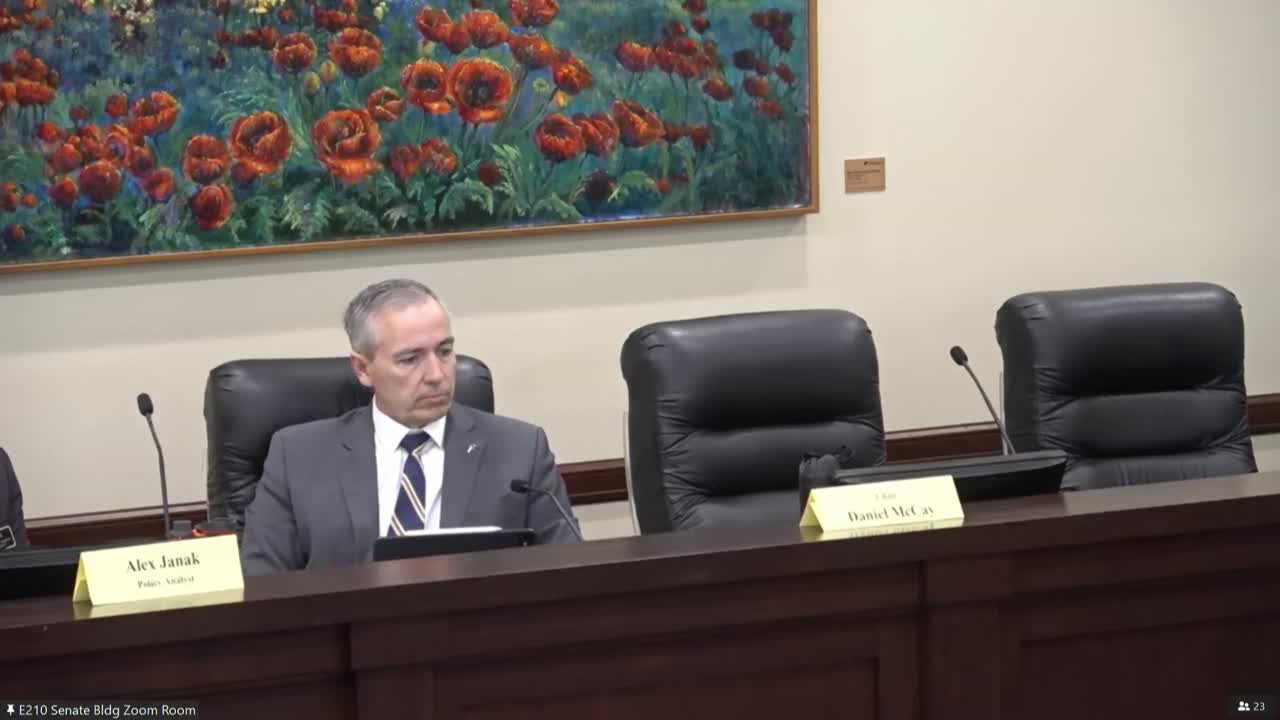Article not found
This article is no longer available. But don't worry—we've gathered other articles that discuss the same topic.
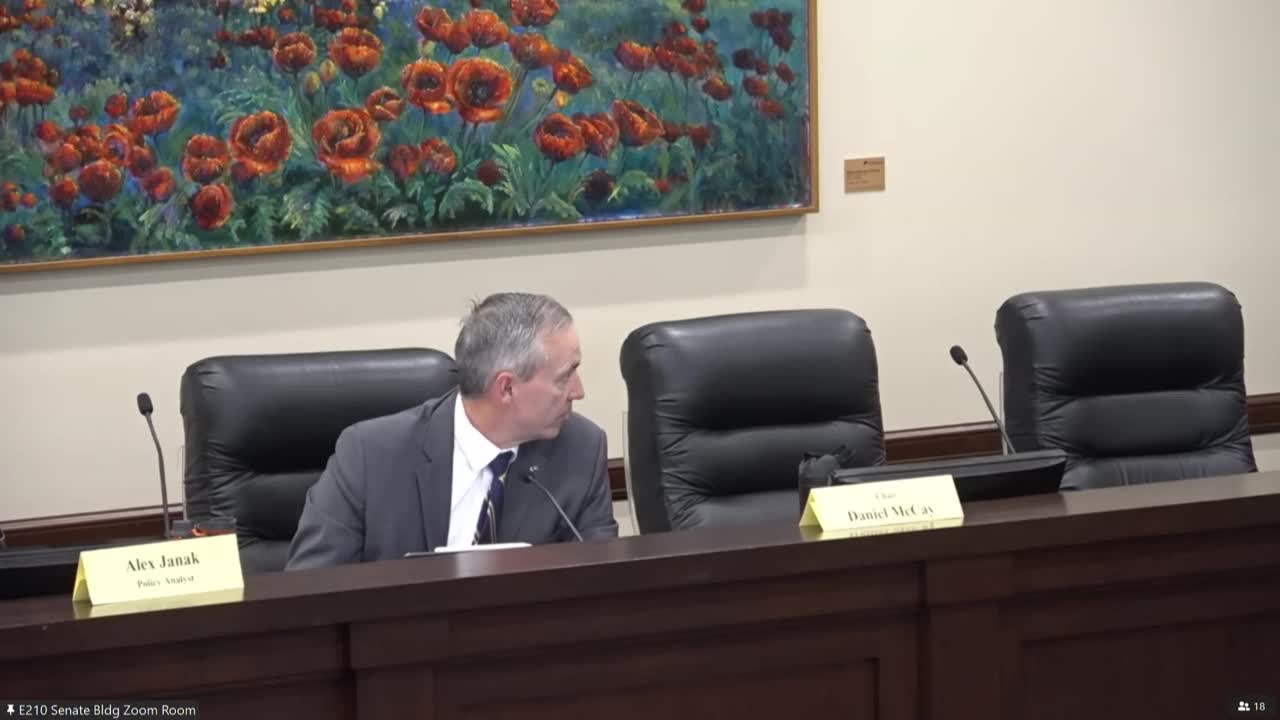
Senate committee adopts first substitute for annual alcohol bill after debate on entertainment districts and proximity rules
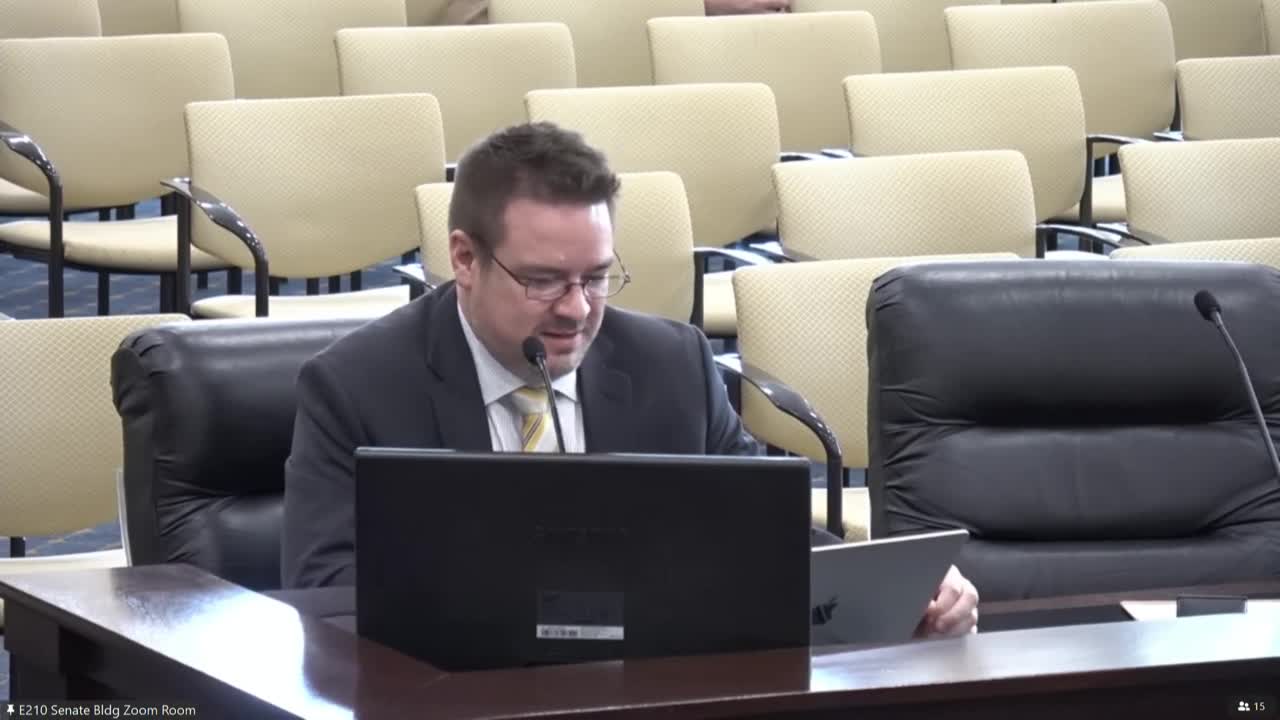
Committee backs tax‑return check‑off to fund school meals; bill includes automatic repeal if underused
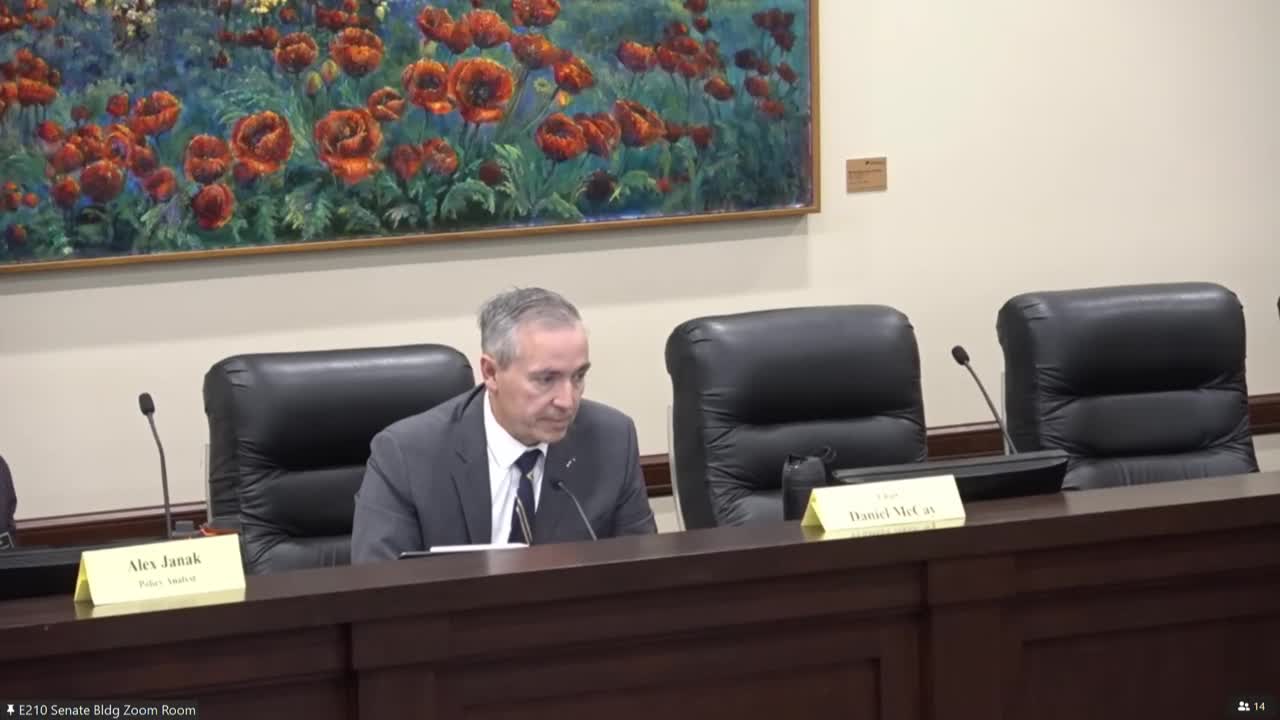
Proposal for a one‑week gun‑safety sales‑tax holiday fails in committee amid concerns about creating new tax holidays
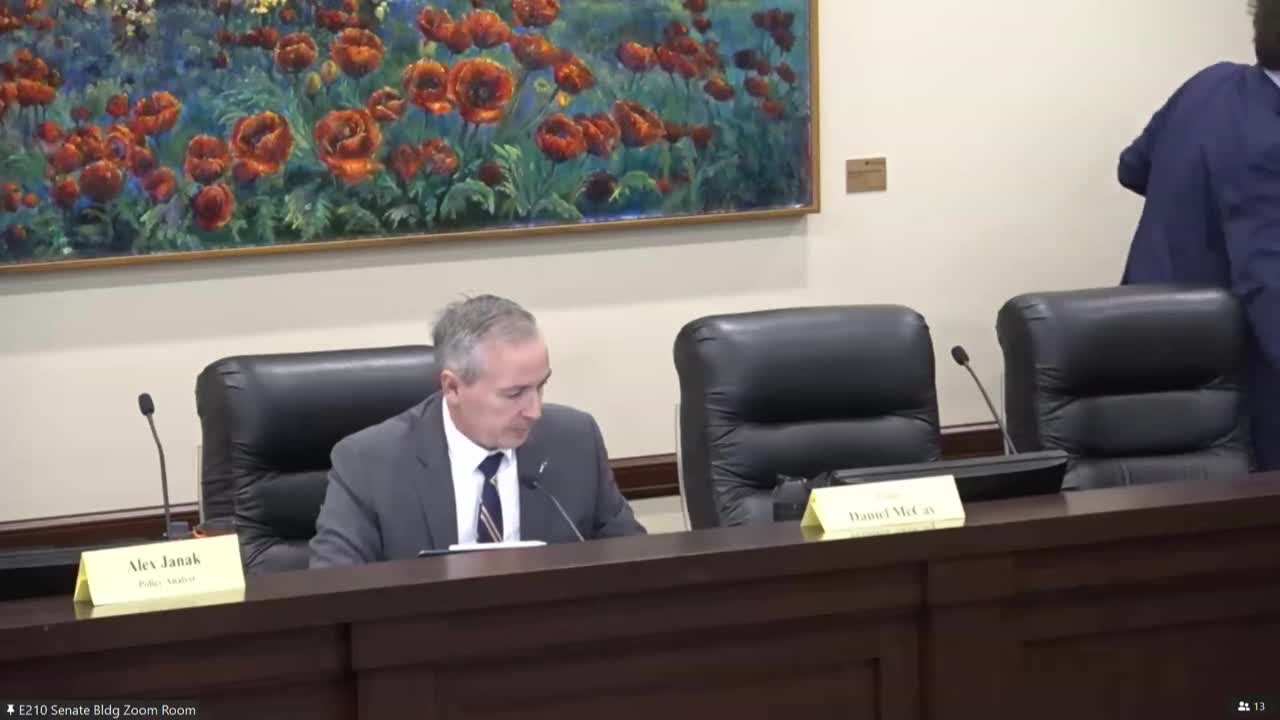
Committee advances bill to end ‘‘hidden’’ automatic property‑tax increases tied to school funding formula
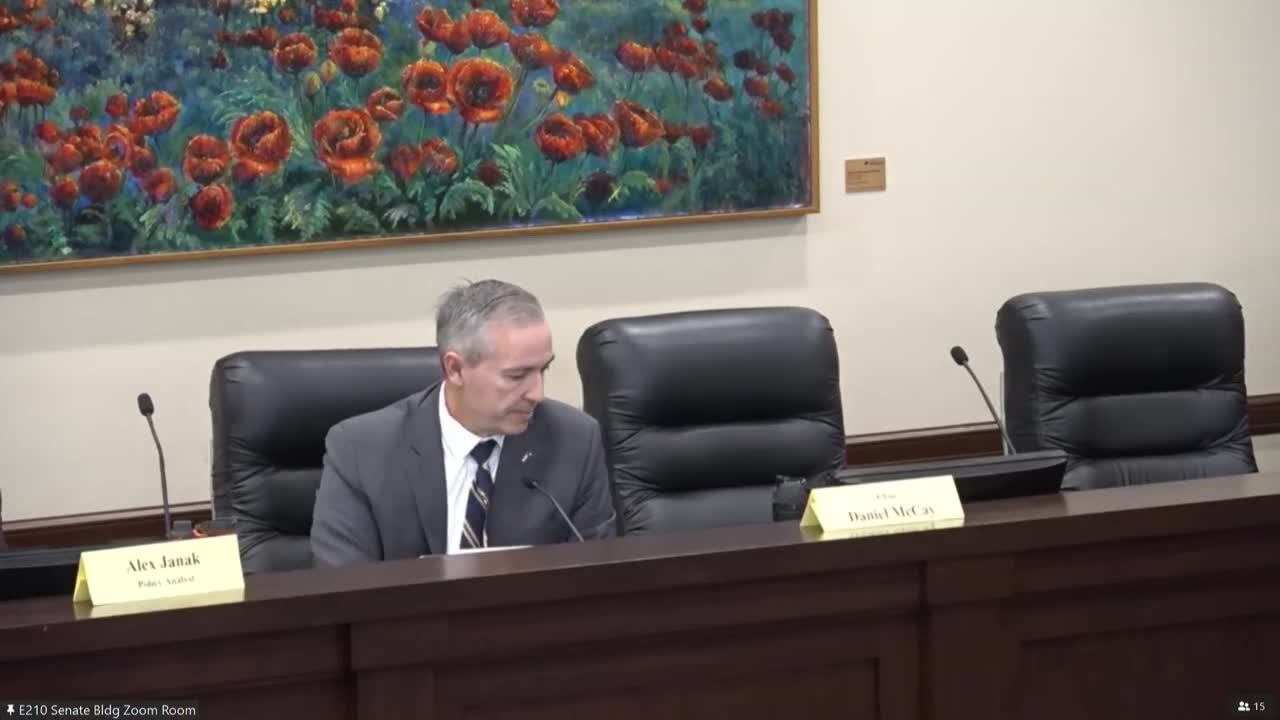
Committee approves changes to black license‑plate fund and creates endowment for historical society
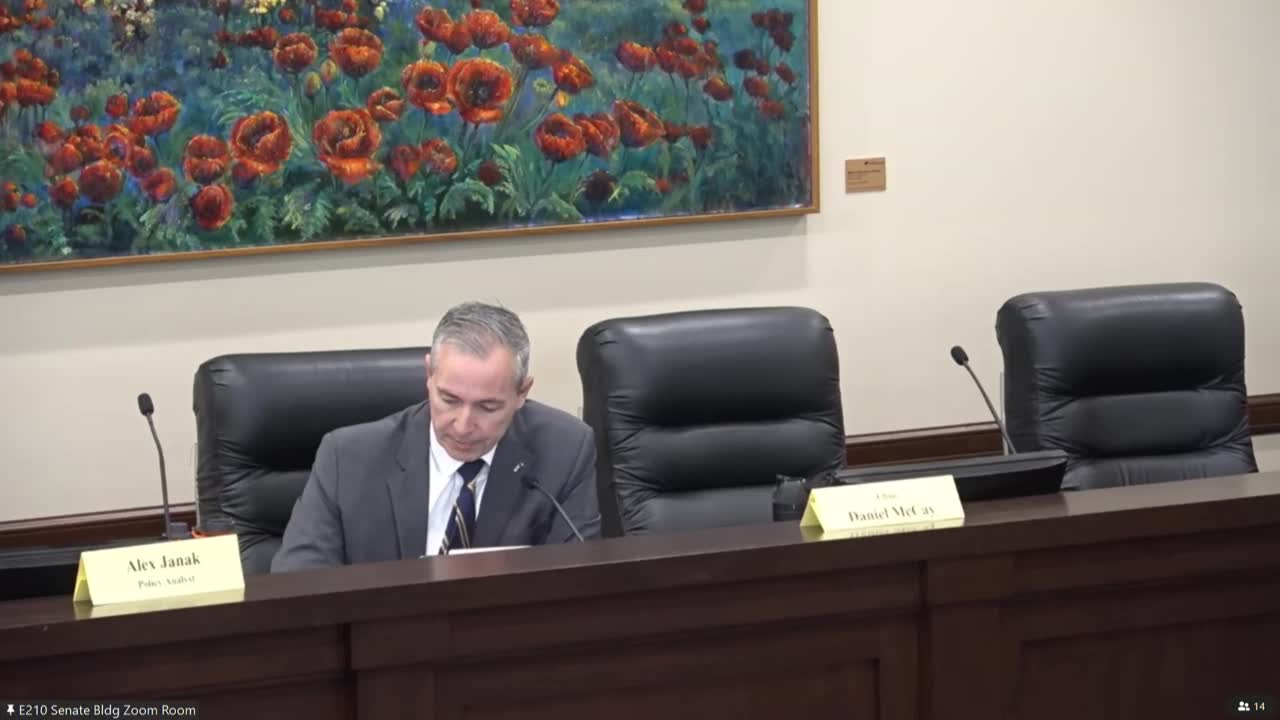
Language‑access requirement for payday lenders stalls after trade group testimony and tied committee vote
